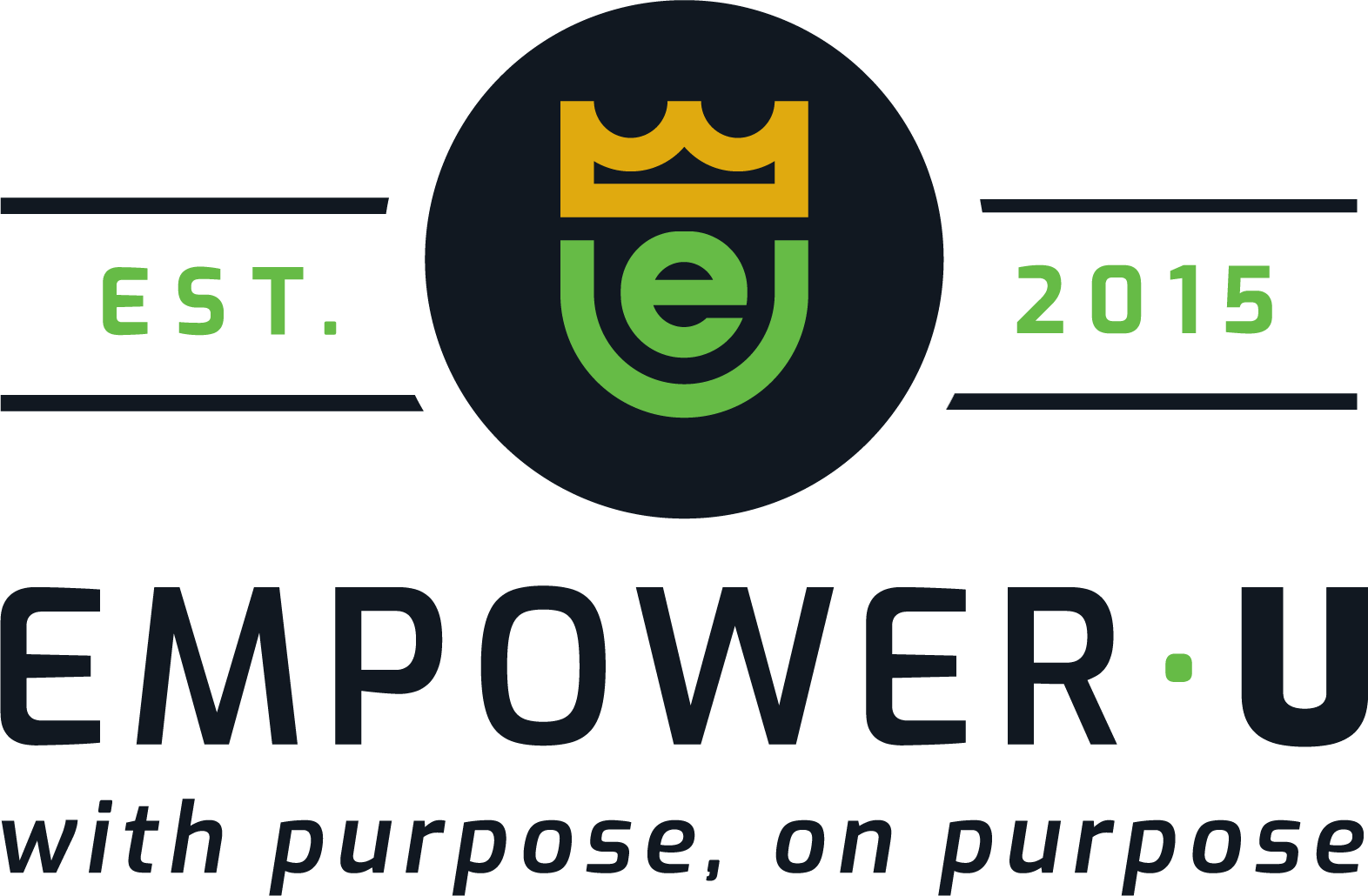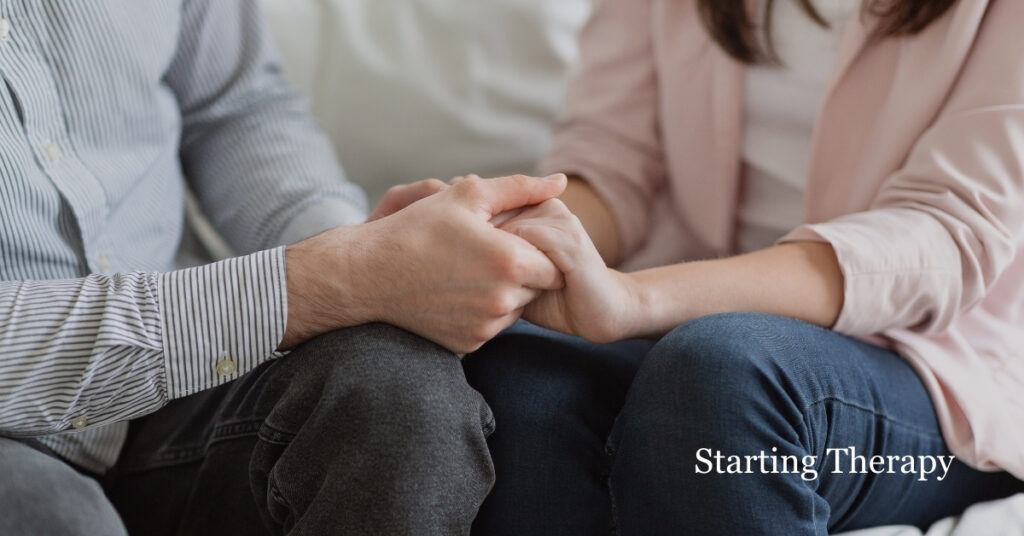Valentine’s Day is often celebrated as a time for romance and togetherness. However, if you’re facing relationship challenges, it can also be a time for reflection on how you contribute to the dynamics of your partnership.
Rather than focusing solely on couples therapy, consider that investing in individual therapy for relationship issues can empower you to create the change you desire in your relationships. By improving your own mental health and emotional resilience, you’ll be better equipped to build intimacy, communicate effectively, and foster a more fulfilling relationship.
In this post, we’ll explore why the best therapy for relationship issues sometimes starts with you, discuss practical strategies you can learn in individual therapy, and explain how working on yourself can transform the way you interact with your partner—this Valentine’s Day and beyond.
Why Focus on Individual Therapy for Relationship Issues?
Often, couples face recurring conflicts that stem from individual struggles. While couples therapy can be an excellent way to address relationship dynamics when both partners are engaged, it isn’t always a viable option.
Sometimes, one partner may refuse to participate, or the relationship may be too new for joint sessions. In these situations, you might wonder: Can you do relationship counseling alone?
The answer is yes. Individual therapy for relationship issues is a powerful tool for understanding and resolving personal challenges that affect your relationships. Instead of waiting for your partner to change, you can take proactive steps to work on yourself.
This approach not only improves your emotional well-being but also sets the stage for healthier, more balanced interactions with your partner. As the saying goes, “Don’t go to marriage counseling, go to individual therapy” — because lasting change often begins with personal growth.
How Individual Therapy Benefits Your Relationship
When you focus on improving your own mental health, you naturally bring more balance and positivity into your relationship. Here are some key benefits of individual therapy that can directly impact your partnership:
Improved Communication Skills
One of the most common issues in relationships is poor communication. In individual therapy, you’ll learn how to express your thoughts and feelings clearly, listen actively, and develop the confidence to speak your truth. By refining these skills, you can reduce misunderstandings and create a stronger connection with your partner.
Enhanced Self-Awareness and Emotional Regulation
Therapy offers a safe space to explore your inner world. By identifying your triggers and understanding the root causes of your emotional responses, you’ll be better prepared to manage stress, anxiety, or anger. This heightened self-awareness allows you to respond to relationship challenges calmly and constructively, rather than reacting impulsively.
Setting Healthy Boundaries
For many individuals, particularly those who have experienced emotional neglect or overgiving in relationships, setting boundaries can be a major hurdle.
Individual therapy provides you with the tools to recognize when your needs are not being met and to communicate those needs effectively. Over time, learning to set and maintain boundaries can significantly improve the quality of your relationships.
Cultivating Self-Love and Resilience
A key focus of therapy is building self-compassion. When you learn to value and care for yourself, you naturally become a more positive and supportive partner. This self-love acts as a foundation for resilience, empowering you to face relationship challenges with strength and optimism.
Creating a Personal Treatment Plan for Relationship Issues
Your therapy sessions can help you develop a tailored treatment plan for addressing your relationship issues. This plan might include specific communication strategies, mindfulness practices, or exercises designed to enhance emotional regulation. With a clear roadmap in hand, you’ll be better equipped to navigate conflicts and foster a more harmonious relationship.
Practical Strategies from Individual Therapy
Individual therapy isn’t just about introspection—it’s also about actionable strategies that can transform your relationships. Here are some practical ways you can work on your relationship issues through individual therapy:
1. Focus on Your Own Role in the Relationship
In therapy, you’ll learn to examine how your thoughts, behaviors, and past experiences shape your interactions with your partner. Instead of placing all the blame on your partner, you’ll gain insights into what you can change to improve the dynamic. This self-reflective process often leads to significant breakthroughs, even if your partner is not yet involved in therapy.
2. Develop Effective Communication Techniques
Effective communication is a cornerstone of any healthy relationship. Your therapist can help you practice techniques such as using “I” statements, active listening, and reflective feedback. These skills not only enhance your ability to share your feelings but also help you understand your partner’s perspective, leading to fewer conflicts and more productive discussions.
Zencare recently published a list of 111 questions to ask your partner on Valentine’s Day that would make great conversation starters. Find the list here.
3. Learn to Manage Emotional Triggers
Many relationship conflicts arise from unresolved emotional triggers. In individual therapy, you’ll work on identifying these triggers and developing strategies to manage them. Whether it’s through mindfulness exercises, deep breathing techniques, or cognitive restructuring, you’ll learn to respond rather than react to emotionally charged situations.
4. Establish and Maintain Healthy Boundaries
Setting boundaries is vital for protecting your emotional well-being. Therapy can provide you with practical tools to determine what your boundaries should be, how to enforce them, and how to communicate them to your partner. Over time, this practice not only reduces conflict but also builds mutual respect within your relationship.
5. Embrace Self-Love and Self-Care Practices
Taking care of yourself is the first step toward improving your relationships. In therapy, you’ll explore self-care routines that nurture your mental, emotional, and physical health. As you learn to love and value yourself, you’ll naturally bring a more positive energy into your interactions with your partner.
6. Learn to “Fight Fair”
Conflict is inevitable in any relationship, but how you handle disagreements makes all the difference. Individual therapy can help you learn techniques for “fighting fair”—expressing your feelings without resorting to blame or criticism, and instead focusing on resolution and mutual understanding. This skill is invaluable in transforming arguments into opportunities for growth.
Addressing Criticisms and Misconceptions Around Individual Therapy for Relationship Issues
Some critics argue that individual therapy isn’t enough for addressing relationship issues and that couples counseling should be the default approach. While couples therapy has its merits, it’s important to recognize that individual therapy can be highly effective, especially when one partner is unwilling or unable to participate. The work you do in individual therapy isn’t about avoiding couples therapy; it’s about strengthening your ability to contribute positively to the relationship—even if you’re the only one in therapy at the moment.
By focusing on your own growth and self-improvement, you create a ripple effect that can encourage your partner to engage more constructively or even reconsider joining you in therapy later. Remember, relationship issues in individual therapy are real and can be a valid stepping stone toward healthier, more balanced relationships.
Real-Life Success Stories
Consider a client who came to therapy feeling overwhelmed by a constant need to please others, a pattern rooted in childhood emotional neglect. Through individual therapy, she learned to set boundaries, express her own needs, and communicate more effectively with her partner.
Although her partner was initially resistant to couples counseling, the transformation she experienced inspired him to eventually consider therapy for himself. This example illustrates that even when the path seems one-sided, the work done in individual therapy can have profound positive effects on your relationship.
Another client struggled with feelings of inadequacy and frustration in her romantic relationship. By focusing on her own emotional growth and learning healthier communication strategies, she was able to shift the dynamic significantly.
Over time, her improved self-awareness and ability to manage conflict not only enhanced her relationship but also bolstered her overall sense of well-being.
Considering Individual Therapy In Addition to Couples Therapy
This Valentine’s Day, consider giving yourself the gift of self-care and personal growth. Individual therapy for relationship issues isn’t about replacing couples counseling—it’s about empowering you to become the best version of yourself. By addressing your own emotional challenges, improving communication, and setting healthy boundaries, you can transform your relationship from within.
Whether your partner is ready to join you in therapy or not, the benefits of working on your own well-being are undeniable. Don’t go to marriage counseling; go to individual therapy if that’s the step you need right now. Ultimately, the work you do for yourself is the foundation upon which any successful relationship is built.
If you’re ready to take the first step toward a more fulfilling relationship, consider scheduling a session with a therapist who specializes in relationship issues. Remember, change begins with you—and a healthier, happier relationship is within your reach.
Take control of your relationship journey this Valentine’s Day and beyond. Reach out today to learn more about how our tailored treatment plans can help you build the relationship you deserve.

